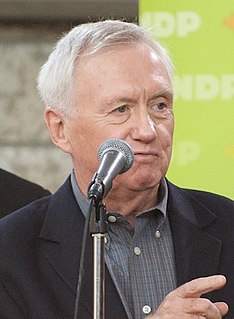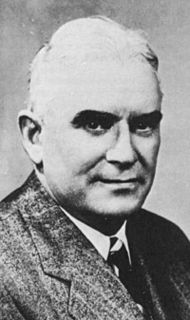This article needs additional citations for verification .(April 2007) (Learn how and when to remove this template message) |
| |||||||||||||||||||||||||||||||||||||||||||||||||||||||||||||||||||||||||||||||||||||||||
79 seats in the Legislative Assembly of Alberta 40 seats were needed for a majority | |||||||||||||||||||||||||||||||||||||||||||||||||||||||||||||||||||||||||||||||||||||||||
|---|---|---|---|---|---|---|---|---|---|---|---|---|---|---|---|---|---|---|---|---|---|---|---|---|---|---|---|---|---|---|---|---|---|---|---|---|---|---|---|---|---|---|---|---|---|---|---|---|---|---|---|---|---|---|---|---|---|---|---|---|---|---|---|---|---|---|---|---|---|---|---|---|---|---|---|---|---|---|---|---|---|---|---|---|---|---|---|---|---|
| Turnout | 66.00% | ||||||||||||||||||||||||||||||||||||||||||||||||||||||||||||||||||||||||||||||||||||||||
| |||||||||||||||||||||||||||||||||||||||||||||||||||||||||||||||||||||||||||||||||||||||||
| |||||||||||||||||||||||||||||||||||||||||||||||||||||||||||||||||||||||||||||||||||||||||
The Alberta general election of 1982 was the twentieth general election for the Province of Alberta, Canada. It was held on November 2, 1982, to elect members of the Legislative Assembly of Alberta.

Alberta is a western province of Canada. With an estimated population of 4,067,175 as of 2016 census, it is Canada's fourth most populous province and the most populous of Canada's three prairie provinces. Its area is about 660,000 square kilometres (250,000 sq mi). Alberta and its neighbour Saskatchewan were districts of the Northwest Territories until they were established as provinces on September 1, 1905. The premier has been Rachel Notley since May 2015.

Canada is a country in the northern part of North America. Its ten provinces and three territories extend from the Atlantic to the Pacific and northward into the Arctic Ocean, covering 9.98 million square kilometres, making it the world's second-largest country by total area. Canada's southern border with the United States is the world's longest bi-national land border. Its capital is Ottawa, and its three largest metropolitan areas are Toronto, Montreal, and Vancouver. As a whole, Canada is sparsely populated, the majority of its land area being dominated by forest and tundra. Consequently, its population is highly urbanized, with over 80 percent of its inhabitants concentrated in large and medium-sized cities, many near the southern border. Canada's climate varies widely across its vast area, ranging from arctic weather in the north, to hot summers in the southern regions, with four distinct seasons.

The Legislative Assembly of Alberta is one of two components of the Legislature of Alberta, the other being Elizabeth II, Queen of Canada, represented by the Lieutenant-Governor of Alberta. The Alberta legislature meets in the Alberta Legislature Building in the provincial capital, Edmonton. The Legislative Assembly consists of 87 members, elected first past the post from single-member electoral districts.
Contents
Less than four years had passed since the Progressive Conservatives won their landslide victory in 1979. Premier Peter Lougheed decided to call a snap election to catch fledgling new parties off guard, most notably the separatist Western Canada Concept which was capitalizing on anger over Lougheed's perceived weakness in dealings with the federal government, in particular his acceptance of the hugely unpopular National Energy Program. The WCC's Gordon Kesler had won a by-election earlier in the year, and Lougheed decided that it would be wise to stage a showdown with the WCC sooner rather than later.
The Progressive Conservative Association of Alberta was a provincial centre-right party in the Canadian province of Alberta. The party formed the provincial government, without interruption, from 1971 until the party's defeat in the 2015 provincial election under Premiers Peter Lougheed, Don Getty, Ralph Klein, Ed Stelmach, Alison Redford, Dave Hancock and Jim Prentice. At 44 years, this was the longest unbroken run in government at the provincial or federal level in Canadian history.

The Premier of Alberta is the first minister for the Canadian province of Alberta. He or she is the province's head of government. The current Premier of Alberta is Rachel Notley, who was sworn in on May 24, 2015.

Edgar Peter Lougheed,, was a Canadian lawyer and politician. He served as the tenth Premier of Alberta from 1971 to 1985 as a Progressive Conservative.
Lougheed then proceeded to mount a campaign based largely on scare tactics, warning Albertans angry with Ottawa but yet uneasy with the WCC that they could end up with a separatist government by voting for a separatist party. The strategy worked for the Tories, who won their fourth consecutive term in government, and returned to the 62% popular vote level it had attained in the 1975 election. This netted the Tories 75 seats in the legislature—in terms of percentage of seats won, the second-largest majority government in the province's history. In the process, they reduced the opposition to only four MLAs in total.
The Alberta Liberal Party was punished in the wake of the NEP. Barely able to field candidates in a third of the ridings, it went down to one of its worst showings in party history.
The Alberta Liberal Party is a provincial political party in Alberta, Canada. Founded in 1905, it was the dominant political party until the 1921 election, with the first three provincial Premiers being Liberals. Since 1921, it has formed the official opposition in the Legislative Assembly of Alberta several times, most recently from 1993 until 2012. Fourteen Liberals have served as Leader of the Opposition of Alberta.
The Social Credit Party collapsed. Its share of the popular vote fell from almost 20% to less than one percent. In a harbinger of things to come, Socred leader Robert Curtis Clark returned to the backbench shortly after the 1979 election, and retired from politics in 1981. Clark's old seat of Olds-Didsbury was resoundingly lost to the WCC in the ensuing by-election, dropping the Socreds to only three seats, one short of official party status. In March 1982, Socred parliamentary leader Raymond Speaker announced the Socreds would sit out the election. A resolution was put forward to disband the party, but failed. After the writs were dropped for the 1982 election, two of the remaining three Socred MLAs, Speaker and Walt Buck, resigned from the party to run for reelection as independents. The third, Fred Mandeville, opted not to run for reelection. With no incumbents for the first time since 1935 and no full-time leader, the party was shut out of the legislature for the first time since 1935, and has never elected another MLA. Speaker and Buck, however, did win reelection, and later formed the Representative Party of Alberta after being denied opposition status.
Robert Curtis "Bob" Clark is a former teacher, civil servant and politician. He served in the Legislative Assembly of Alberta from 1960 to 1981. He served as Leader of the Alberta Social Credit Party and Leader of the Official Opposition. After his political career, he served as the Alberta Ethics Commissioner from 1992 to 2003.
Olds-Didsbury was a provincial electoral district in central Alberta, Canada, created in 1963 and abolished in 1997. It is noteworthy as the location of a famous by-election in 1982, when the separatist Western Canada Concept achieved the first and only electoral victory in the movement's history.
Official party status refers to the Canadian practice of recognizing political parties in the Parliament of Canada and the provincial legislatures. In official documents, this is sometimes referred to as being a recognized party. The type of recognition and threshold needed to obtain it varies. However, the most coveted privileges are funding for party research offices and the right to ask questions during Question Period.
The New Democratic Party, led by Grant Notley, became the official opposition when Ray Martin was elected to the legislature. Notley had been the sole NDP MLA for more than a decade.

The Alberta New Democratic Party, commonly shortened to Alberta NDP, is a social-democratic political party in Alberta, Canada, which succeeded the Alberta section of the Co-operative Commonwealth Federation and the even earlier Alberta wing of the Canadian Labour Party and the United Farmers of Alberta. From the mid-1980s to 2004, the party abbreviated its name as the "New Democrats" (ND).

Walter Grant Notley was a Canadian politician. He served as a member of the Legislative Assembly of Alberta from 1971 to 1984 and also served as leader of the Alberta NDP from 1968 to 1984.

Raymond James "Ray" Martin is a politician in Alberta, Canada and former member of the Legislative Assembly of Alberta.
The WCC, a party that advocated the separation of the four western provinces of Canada to form a new country, had surprised Canadians when Kesler won his by-election and took a seat in the Alberta legislature. Although Kesler lost his seat in this election after he changed electoral districts from Olds-Didsbury and ran in Highwood, the WCC won almost 12% of the popular vote.
The Alberta Reform Movement, a new party founded by ex-Progressive Conservative Tom Sindlinger was caught unaware when the election was called, and ended up losing its only seat in Calgary Buffalo.







